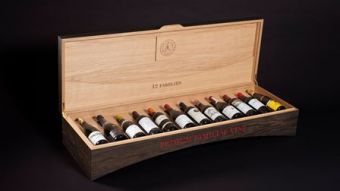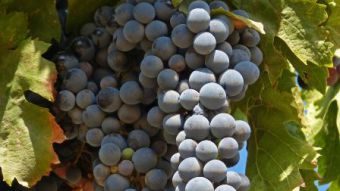IWCA increases its collaborative effort to decarbonize the global wine sector with the admission of five new wineries
Miguel Torres Chile joins IWCA as Silver Member and four other wineries from France, Chile and Australia sign up as Applicant Members. Château Troplong Mondot and Herència Altés, both Applicant Members since last September, upgrade to Silver Membership.
International Wineries for Climate Action (IWCA) welcomes 5 new wineries from around the world both as Members and Applicant Members since they have committed to take immediate action to reduce their carbon emissions. With these new additions, IWCA stands out as an international association truly tackling climate change with 27 wineries joining since it was founded by visionary winemakers Miguel A. Torres (Familia Torres) and Katie Jackson (Jackson Family Wines) in Barcelona in February 2019.
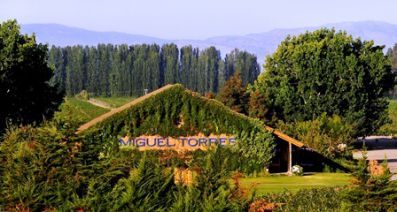 Miguel Torres Chile Miguel Torres Chile (Chile) has joined as a Silver Member after committing to become Net Zero by 2050 at the latest and completing an annual third-party audited greenhouse gas emissions inventory that encompasses Scopes 1-3. The winery, founded in 1979 by Miguel A. Torres, is one of the main Chilean producers of premium wines, with 400 hectares of organic vineyards and distribution in over 100 countries. “We must undertake concrete actions to reduce and mitigate the impacts produced by our processes. All companies should do the same. Our participation in IWCA is key for us as we will join a strict protocol to mitigate CO2 emissions, adopt actions implemented by other wineries around the world and share information regarding new projects” said Jaime Valderrama, Managing Director of Miguel Torres Chile.
Miguel Torres Chile Miguel Torres Chile (Chile) has joined as a Silver Member after committing to become Net Zero by 2050 at the latest and completing an annual third-party audited greenhouse gas emissions inventory that encompasses Scopes 1-3. The winery, founded in 1979 by Miguel A. Torres, is one of the main Chilean producers of premium wines, with 400 hectares of organic vineyards and distribution in over 100 countries. “We must undertake concrete actions to reduce and mitigate the impacts produced by our processes. All companies should do the same. Our participation in IWCA is key for us as we will join a strict protocol to mitigate CO2 emissions, adopt actions implemented by other wineries around the world and share information regarding new projects” said Jaime Valderrama, Managing Director of Miguel Torres Chile.
The other four wineries, which have been accepted as IWCA Applicant Members, come from France, Chile and Australia. These are:
- Famille Perrin (France): From the legendary Château de Beaucastel to the partnership with Brad Pitt at Miraval, the Perrin family has experienced over a century of success. Famille Perrin is today the largest owner of vineyards in the best terroirs of the southern Rhone Valley in France. Pioneers of organic farming since 1953 and biodynamics since 1970, the strength of Famille Perrin is knowing how to cultivate everyone’s talents to support their vineyards but always under the auspices of common values: absolute respect for the terroir and the soils, biodynamics as a philosophy of life, pursuit for precision, balance and elegance.
- Champagne Lanson (Champagne, France): Founded in 1760, Lanson is one of the oldest Champagne Houses, still owned by a Champagne family group. The unique style of its Champagnes rests on 4 immutable pillars: a meticulous selection of Crus; a vinification according to the traditional Champagne principle; a rare collection of reserve wines, and a longer ageing in cellars. As a major player in the Champagne region, respect for the terroir is a primary concern for Lanson. Since 2010, it has been committed to a more ecological viticulture, promoting the balance between the soils, the plants and people.
- Viña Undurraga (Chile): Established in 1885, Viña Undurraga, one of Chile’s great historic estates, has grown over time to become one of Chile’s leading producers today. With over 1,350 hectares under vine in diverse wine regions around Chile, although the winery is in Maipo, the portfolio very much spans the whole Chilean territory. Now, more than ever, and thinking about the generations to come, Viña Undurraga reaffirms its commitment to sustainability and the responsibility it has with the environment.
- Voyager Estate (Margaret River, Australia): Established in 1978, Voyager Estate is a family-owned vineyard and winery in Margaret River; a unique cape region nestled in the south-western corner of Australia. Its wines are all grown and meticulously crafted on its property, where they’re showcased in its cellar door and restaurant. The vineyards are 100% organically farmed, with wines transitioning to full certification by 2023. Sustainability has been at Voyager Estate’s core for over 20 years, with a focus on building soil carbon, ecosystem support, land management, water efficiency and renewable energy.
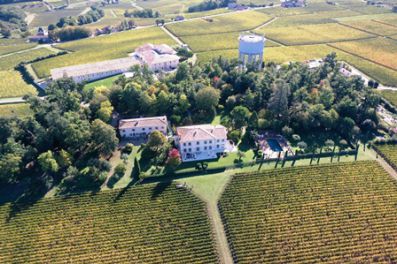
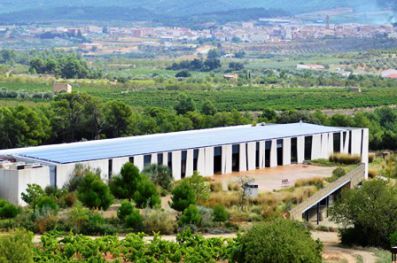
IWCA has also launched two regionally adapted IWCA calculators for wineries in Australia and New Zealand. These tools have been developed in collaboration with Sustridge and Yealands Estate Wines for current and potential members of IWCA to calculate their annual greenhouse gas emissions inventories and include the most material emissions sources for typical wineries and vineyards. This was announced at the quarterly virtual meeting that took place in January with all members and applicants to discuss the plan of action to push IWCA’s mission forward by recruiting new members and sharing best practices for emissions reductions.
IWCA is open to wineries who recognize that climate change is the most significant threat to the wine community and are guided by the urgency for strategic action to accelerate innovative solutions. The organization has two membership categories (Gold and Silver) with requirements that include becoming Net Zero by 2050 at the latest, completing an annual third-party audited greenhouse gas emissions inventory that encompasses Scopes 1-3, powering winemaking operations by renewable energy, and demonstrating a constant reduction of CO2 emissions from a baseline inventory year in line with the overarching Net Zero target.


